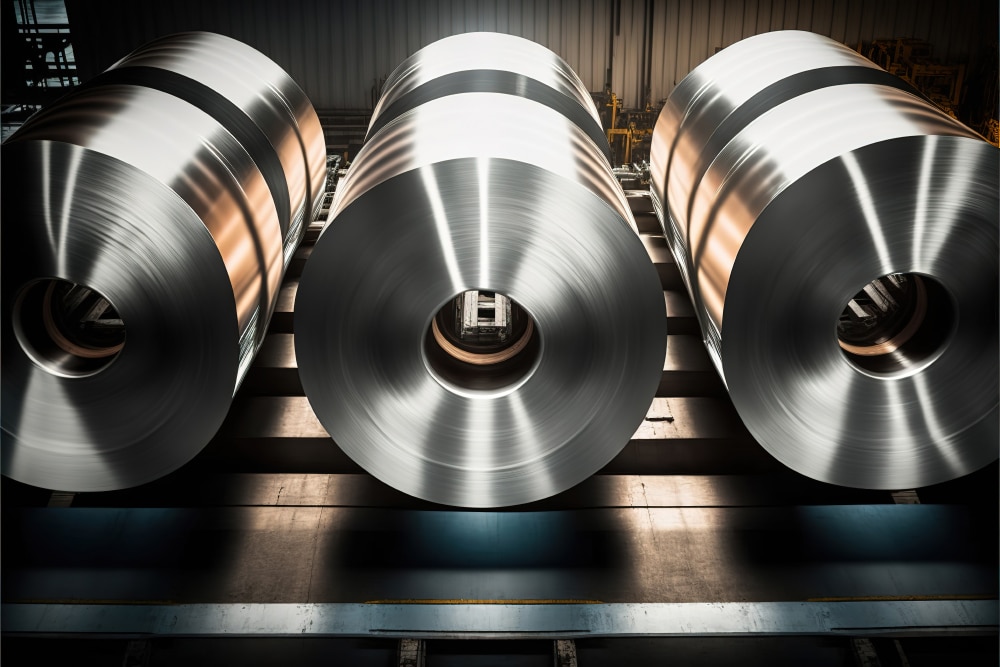UK Proposing Extension of Protectionist Steel Measures
In desperate times, politicians turn to increasingly desperate policies to prop up support. This remains the case for British steel. Recently, the UK’s Boris Johnson has been dodging accusations that he repeatedly lied to parliament. This, combined with his seeming inability to admit his failings, has pushed political turmoil in the country to a fever pitch.

It’s worth noting that the allegations against Johnson stem from relatively petty infringements of his own draconian rules during the pandemic. Even so, his popularity among the UK populace is nearing rock bottom. So far, the part has lost two key by-elections in what are dubbed “Red Wall” seats. These are traditionally Labour Party areas that swung Tory in the last election. At the time, the desire for Brexit overcame historic socialist leanings.Recent accusations state that Johnson used steel trade sanctions to shore up support for the seats, but failed in his efforts.
Tariff Troubles Loom on the Horizon
On the plus side, the government is proposing a two-year extension on existing “safeguard” measures. These are tariffs on imports over a certain quota threshold instigated across the EU back in 2018 and later extended by the European Union.
But as Trump discovered back in 2018, imposing a 25% tariff on imported steel to bring back steelmaking and manufacturing jobs is no easy task. In the case of the US, it quickly became a bureaucratic nightmare. Instead of bringing jobs back to the Midwest rust belt, the government wasted countless government hours trying to manage the exemptions and challenges from special cases.
In fact, despite those exemptions gradually being granted, specialty steels and other commodity products still get caught for months at a time. This deprives manufacturers of access to competitively priced steel for which no domestic equivalent supplier exists.
Sign up for MetalMiner’s upcoming free webinar “Best Ways to Achieve Immediate Part/Component Cost-downs”. Click here!
British Steel and Possible Legal Infringement
As with the US, the UK’s move will surely run into trouble with the WTO. Indeed, lawyers on all sides have lined up to challenge the extensions as soon as they’re approved. Of course, the UK is already on the brink of retaliatory action from the EU over changes to the Northern Ireland protocol. A trade war on steel tariffs is the last thing an economy heading into recession needs.
To make matters worse, protections rarely benefit the wider economy. It also sends a worrying signal to the world about Britain’s vaunted post-Brexit model as a global trading country. The country embraces the same protectionist measures as the rest of Europe. In fact, they’ve proved critical for years.
UK Steel in Need of Anti-Dumping Policies
Anti-dumping duties are appropriate in many cases for British Steel. For supplying countries like China, the case remains crystal clear. However, indiscriminately applying such measures across a swath of developing countries poses a terrible threat. Sure, they produce steel at a lower price than the UK. However, these policies put a far greater number of steel consumers at a global disadvantage in the interest of the few.
Should the government look closer to home? For example, they could re-appraise its headlong rush into ever-harsher environmental legislation. Perhaps closing energy supply options in the interest of dubious environmental goals have caused more problems for the steel industry than imports? After all, those goals are above and beyond those implemented by other countries.
The easiest way to keep yourself informed of fluctuations in the metal marketplace is MetalMiner’s monthly MMI Report. Sign up here to begin receiving it completely FREE of charge. If you want a serious competitive edge in the metals industry, try a demo/tour of our revolutionary insights platform here.


Leave a Reply